ProMach is your partner from start to finish. Our product brands are grouped into distinct business lines that make the most sense to our customers, covering every function of the production line: Filling, Bottling & Capping, Decorative Labeling, Flexibles & Trays, Pharma, Handling & Sterilizing, Labeling & Coding, Robotics & End of Line, and Systems & Integration.
learn moreMaximizing Efficiency: How a Cartoning Machine Transforms Packaging in the Era of Automation
In the fast-evolving landscape of packaging, the integration of automation technologies has become paramount for businesses striving to enhance efficiency and productivity. The cartoning machine, a pivotal player in this transformation, is redefining packaging processes across various industries. According to a recent report by Smithers Pira, the global demand for automated packaging solutions is projected to grow at a CAGR of 11% from 2020 to 2025, underscoring the critical role of machines like the cartoning machine in meeting these demands. With capabilities that streamline operations, reduce labor costs, and improve product safety, cartoning machines offer a compelling solution for manufacturers. As companies navigate the challenges of modern production lines, leveraging such innovative technology is essential to maintain a competitive edge and optimize overall operational efficiency.
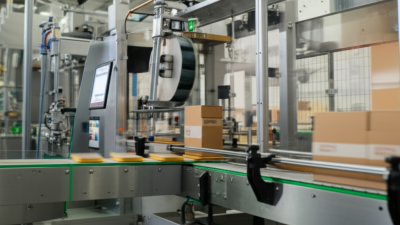
Understanding the Role of Cartoning Machines in Modern Packaging Solutions
In the landscape of modern packaging, cartoning machines play a crucial role in automating processes and enhancing productivity. According to a report from Smithers Pira, the global packaging machinery market is projected to grow from $43 billion in 2021 to $60 billion by 2026, driven by the demand for efficiency and sustainability. Cartoning machines, which are designed to swiftly and accurately load products into cartons, significantly reduce manual labor and minimize errors, making them indispensable in high-volume production environments.
Furthermore, the integration of advanced technologies such as Industry 4.0 principles is reshaping the functionality of cartoning machines. A recent study by the Association for Packaging and Processing Technologies reported that manufacturers utilizing automated cartoning solutions experience up to a 30% increase in throughput. These machines are equipped with sensors and smart software that optimize the packing process, ensuring precision and consistency while adapting to different product sizes and types. As companies strive for greater operational efficiency, the significance of cartoning machines in streamlining packaging operations cannot be overstated.
Identifying Key Features to Look for in an Automated Cartoning Machine
In the evolving landscape of automation, selecting the right automated cartoning machine is crucial for enhancing packaging efficiency. Key features to consider include precision, speed, and adaptability. A machine that offers high-speed operation while maintaining accuracy can significantly reduce downtime and waste. Precision is particularly essential in ensuring all packages are consistently filled and sealed, which is vital for maintaining product quality and brand integrity.
Moreover, adaptability is a vital feature; as consumer preferences shift, packaging requirements often change. A versatile cartoning machine can accommodate various product types, from organic produce to packaged goods, facilitating smoother transitions between different packaging formats. Recent advancements in sorting and packaging technologies exemplified by new equipment launches highlight the industry's drive towards more efficient processing. Such innovations not only increase operational efficiency but also support sustainable practices in packaging, reflecting a commitment to quality and environmental responsibility in the sector.
Steps to Integrate Cartoning Machines into Existing Packaging Lines
Integrating cartoning machines into existing packaging lines can significantly enhance operational efficiency and reduce labor costs. According to a recent report by Smithers Pira, automating packaging processes can boost productivity by up to 30% while decreasing packaging waste by nearly 20%. The first step in this integration is to assess your current production flow. Understanding how your packaging line operates will enable you to identify bottlenecks that a cartoning machine can alleviate.
Once you've mapped out your existing system, it’s essential to select a cartoning machine compatible with your current setup. Consider factors such as production speed, carton size range, and the machine's ability to handle various packaging materials. A thorough examination should also include evaluating integration complexities and potential training needs for staff.
**Tip:** Before purchasing, engage a packaging consultant for expert insights on the best options tailored to your specific needs. Additionally, ensure that the machinery you select has a robust support network for seamless maintenance and upgrades. As you transition to automated solutions, maintaining flexibility will be crucial. This adaptability can help accommodate future changes in product configurations or market demands, enabling sustained growth in the rapidly evolving packaging industry.
Maximizing Efficiency: How a Cartoning Machine Transforms Packaging in the Era of Automation
| Step | Action | Expected Outcome | Timeframe |
|---|---|---|---|
| 1 | Assess Current Packaging Process | Identify inefficiencies and areas for improvement | 1 Week |
| 2 | Research and Select Cartoning Machine | Choose the best machine to fit operational needs | 2 Weeks |
| 3 | Plan Integration into Existing Line | Create layout to optimize flow and space | 1 Week |
| 4 | Install Cartoning Machine | Complete installation with minimal disruption | 2 Weeks |
| 5 | Conduct Testing and Adjustments | Ensure machine operates smoothly; make necessary adjustments | 1 Week |
| 6 | Train Staff on New Equipment | Ensure all operators are knowledgeable | 1 Week |
| 7 | Begin Full Production | Achieve increased efficiency and output | Ongoing |
Maximizing Production Efficiency with Proper Maintenance of Cartoning Equipment
In the era of automation, maintaining cartoning equipment is pivotal for maximizing production efficiency in the packaging sector. According to a report by Smithers Pira, the global demand for packaging machinery is expected to grow at a CAGR of over 5% from 2021 to 2026, highlighting the importance of integrating efficient machinery into production lines. Regular maintenance of cartoning machines can significantly reduce downtime and enhance output. Studies show that effective preventive maintenance can lead to a 20% increase in machine availability, ensuring that production schedules remain on track and operational costs are minimized.
Moreover, keeping cartoning equipment in optimal condition not only prolongs its lifespan but also enhances the quality of the packaging produced. A survey conducted by the Packaging Machinery Manufacturers Institute (PMMI) found that 72% of manufacturers reported improved product quality and reduction in waste when regular maintenance protocols were followed. By implementing systematic monitoring and maintenance schedules, companies can ensure that their cartoning machines operate at peak efficiency, accommodating the fast-paced demands of automation while delivering high-quality packaging solutions that meet industry standards.
Evaluating Cost-Effectiveness and ROI of Automated Cartoning Systems
The shift towards automation in packaging has revolutionized the operational landscape for manufacturers, with automated cartoning systems emerging as a focal point in this transformation. Industry reports indicate that automated packaging can reduce labor costs by up to 30%, significantly enhancing efficiency. According to a study published by Analysts, incorporating a cartoning machine can streamline production lines, increasing output rates by as much as 50%. This efficiency translates not only into cost savings but also into a quicker return on investment (ROI), which can be realized within 18 months to two years of implementation.
Furthermore, the importance of evaluating cost-effectiveness has never been more paramount. A recent survey from Packaging Strategies revealed that 78% of businesses utilizing automated cartoning have experienced lower operational costs, reduced product waste, and enhanced product safety. These systems contribute to minimizing downtime while optimizing labor resources. With innovations such as customizable solutions and integration capabilities, companies can tailor their cartoning machines to meet specific needs, further justifying their investment. Businesses that proactively assess the ROI of their automated systems are better positioned to remain competitive in a rapidly evolving market driven by efficiency and cost-effectiveness.
Related Posts
-
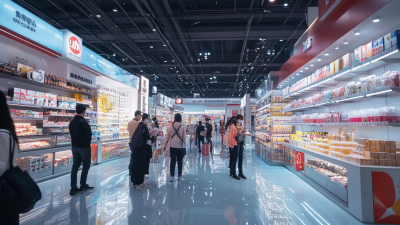
Exploring the Surge in Global Demand for Sachet Packaging at the 137th Canton Fair
-

Ultimate Guide to Mastering Filling Equipment for Enhanced Production Efficiency
-
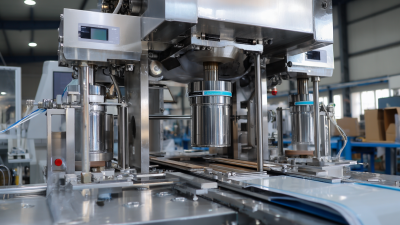
How to Choose the Right Sachet Packaging Machine for Your Business Needs
-

Understanding the Benefits of Best Form Fill Seal Technology
-
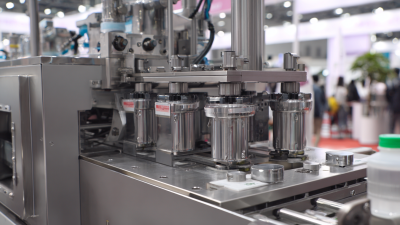
Exploring Innovations in Sachet Filling Machines at the 138th Canton Fair 2025 in China
-
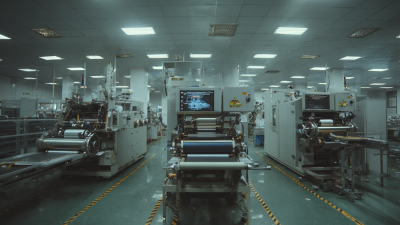
Quality Beyond Borders: The Best Seal Machine from China Capturing the Global Market